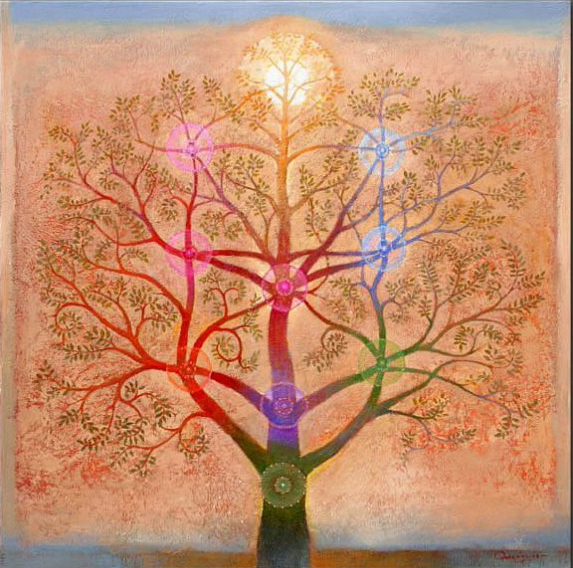 It is normal to encounter ideas which we entertain briefly and sincerely, but upon close inspection, later reject or lay aside one way or another. This happens so often that it's hardly a big deal when we reject an idea or even a constellation of ideas we once thought attractive, although it can be a big deal if we believed an idea for a long time. Like friendships, antiques, and wine, truly good ideas get more precious over time -- and bad ideas more pernicious.
It is normal to encounter ideas which we entertain briefly and sincerely, but upon close inspection, later reject or lay aside one way or another. This happens so often that it's hardly a big deal when we reject an idea or even a constellation of ideas we once thought attractive, although it can be a big deal if we believed an idea for a long time. Like friendships, antiques, and wine, truly good ideas get more precious over time -- and bad ideas more pernicious.
I will admit it was a big deal to reject an idea which fascinated me for a while early in my intellectual journey when, for example, I rejected Atlas Shrugged back in the early 1990s after three long years of letting it guide my imagination. I thought it was a wonderful book upon which I ought to model my philosophical thinking in important ways. Turns out, this is what many a young, impressionable, minds do with this book, so I hardly give it another thought today, 30 years later.
It was likewise a big deal another time, a year or two after absorbing a beautiful, complex, even enchanting way of seeing the world, when I finally rejected the underlying premises of my Bible as Literature course in college. This was a course I loved well. I was excited about the things I learned there until enough time and experience went by and I realized the "literature" approach to God was almost entirely useless in actually understanding who God is. I say "almost" because there is value in studying at least enough to find great writers like Rumi, Dante, and wonderful, ancient books like the Bhagavad-Gita, among many others like this which are easily found while charting a course through sacred literature.
And so on. I could give other examples, but the point is simple: It happens, and always will, that I occasionally study an idea for a while, quite liking it, and then later reject it. As far as I know, everybody who is curious does this. Maybe we all do it, though I believe I know some people who really do stay the same over the course of their adult lives, neither accepting anything new nor relinquishing anything old, or perhaps only accepting something new after much careful study. This is not my style; although I am more careful about things as time goes by, I still tend to jump into things well into the deep end of the pool and sometimes have to climb out because it turns out there were alligators in the pool.
 I'm making a relatively big deal about this present one because I have written about Kabbalah in some detail -- and even hopfully some depth -- here and elsewhere. I have turned up some interesting and possibly even sometimes profound ideas along the way.
I'm making a relatively big deal about this present one because I have written about Kabbalah in some detail -- and even hopfully some depth -- here and elsewhere. I have turned up some interesting and possibly even sometimes profound ideas along the way.
I still think my previous articles and essays and inquiries are useful and should, in general, be read by others -- as much as a person can while also holding to-be-expected reservations about one's own work. In preparing to fulfill the headline of this post, I want to be clear: I am not going to reject what I have already written and done one iota. This is a graduation, not a rejection. Having learned to live life with few regrets means learning to organize those things which other people call regrets into the category of "lessons in life" rather than "shamefully hidden secrets which must be denied."
For some of us, that is no easy task indeed. For example, though I am here unfurling a principled relinquishment of Kabbalah, it is without malice. I will retain those previous writings where they are, perhaps even collate them over time into a single bundle, and likely continue to share them in the future with others when appropriate. Their influence in my thoughts will remain a long time, I'm sure. But my core interest is turning elsewhere.
I am no longer going to be studying the Kabbalah with the intent of going deeper into it, as if it provides answers to questions.
There, I said it.
Today, as a step in the process of disengaging, I am declaring: "I have enough answers in this domain." The reason is simple and clear. I recently discovered, while researching in one obscure area or another -- the details of which I've already forgotten -- the fact that there is a horrible, black, evil version of Kabbalah out there. It is, as far as I can tell, so evil that it may be the origin of some of the most intentionally evil actions on earth, causing much suffering because of the rarified level -- closer than most to the True Underlying Unity of All -- where it operates (in its finer moments, meaning that to which many of its pretenders aspire but never reach).
Okay, maybe that wasn't so simple and clear, so here's the simple and clear version: Some people misuse the truth in Kabbalah in such a devious way I can no longer be associated with it and keep a clean conscience, so I'm moving on.
I'd long heard vague hints of such a thing, and thus always avoided any of the crude, lower forms of "practical kabbalah" (as scholars like Aryeh Kaplan, Gershom Scholem, or Evelyn Underhill, call this level). That materialistic level was never interesting to me, so whenever I saw references to it, I moved on quickly. Due to the good fortune of having studied mysticism in a college-level course (taught by a rabbi, at a synagogue, for college credit: a happy trifecta) early in my intellectual journey, I knew early where to seek the good fruits. I also had early exposure in adolescence via some vague overheard-type conversations that turned out later to be kabbalistic in nature, as I have written about elsewhere, which gave me a background sense of the principles involved in how to look for the good.
I am pleased to be able to say I always studied only the higher, more pure, philosophical, abstract, beautiful, mathematical, edifying areas of Kabbalah. The only "practical" action I ever learned is the simple one of kneeling to pray with my hands held gently together in front of me, on my knees, in the classic pose.  That seems to me to be the most innocuous and humble position possible, thus it is a common one for meditation and prayer. I've become acquainted with this kind of meditation roughly once daily for the past decade and a half or so. That's the only "practical" thing I ever did.
That seems to me to be the most innocuous and humble position possible, thus it is a common one for meditation and prayer. I've become acquainted with this kind of meditation roughly once daily for the past decade and a half or so. That's the only "practical" thing I ever did.
Any "structure" to such inner seeking was of the kind invented by myself, rather than copied from a book. Such meditation is really more of an action associated with the larger field of mysticism, or even spirituality in general, than kabbalah itself, which I say so you can understand how purely intellectual has been my journey.
Most surely this simple pose is not in any way related to the crude talismans, amulets, chants, symbols, and so forth. All the rest of my journey has been an intellectual, psychological, emotional adventure with little practical expression beyond a growing, maturing character which is given to all who sincerely seek heaven, no matter the means.
I have never performed any kind of ritual, is what I'm saying, nor recited any phrases, nor drawn any circles, and so forth. Whenever I found reference to such things, I moved on to other material, as you should also. In fact, I once quit a job working at a local herb store because it was so hard for me to sell certain kinds of talismans, incenses, etc. to customers, when I knew they were going to be used in rituals. Even this detached exposure was more than I could bear, and I eventually quit working at a great job which I did well, because of this specific issue.
I write this so you can see how strong has been my avoidance along these lines. When in conversation others tend to be interested in that layer, I calmly find an exit and go for a walk, more content with the infinite, inner communion with God than the more finite, competitive outer communion and physical attachments attractive to others because they are visible: virtue signaling. I see that as an early stage of development.
I firmly believe there is much well-structured light in the world of books and oral tradition known as the Kabbalah. There is plenty of babble, too, I saw that all along. To me, the core principles in Kabbalah study are intrinsically interwoven with truth: the Holy Spirit, angels, heaven, and great good things. But the discovery -- with evidence that is not certain, but close enough for my purposes -- that there is a very evil branch of Kabbalah -- not just clumsy and crude "magic-like," but advanced, refined, and intentionally focused evil -- surprised me.
I honestly had no idea that evil existed both at the crude easily-avoided bottom of the pursuit and the top, hidden in the more advanced areas of this field of study. I always thought the top end of Kabbalah was clean and pure and holy, opened into heaven, and was a bulwark against evil, existing at the most important level wherein which to operate a belief system. 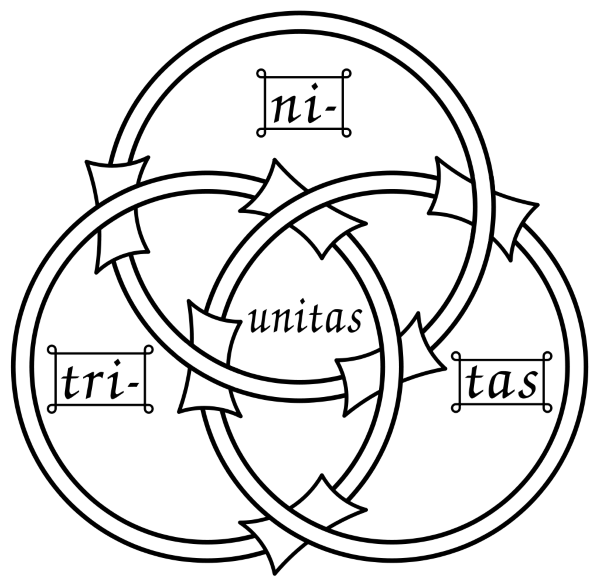
As I contemplated this new piece of information, I soon realized with appropriate disgust that I must now walk away. I must dissociate myself from the whole realm of Kabbalah study -- insofar as it is reasonable -- because I cannot risk pursuing something which could end with me believing, being, and doing evil. I must pursue only those things which truly and only open into heaven.
Note I am not saying the Kabbalah is evil -- that is a hasty generalization, and a discussion out of scope for this brief post. I am simply being somewhat precise in what I personally mean by Kabbalah, since there are many variations, each carrying one tiny angle on the truth and as with most belief systems, generally thinking they've got the only true one.
Whatever evil I have done in my life is the ordinary kind which we all encounter. It has never been the sort of methodically, intentional, calculating evil which I imagine -- based on hints -- to live in a dark side of certain mystical literature. This is not the first time I have used principles to walk away from something I loved like this, nor will it be my last. But I feel that, more than with other pursuits, I must mark a point in time for others who encounter the full scope of my writings. Thus I consciously and intentionally -- understanding what I'm doing as well as a man ought -- walk away from the Kabbalah at this time. Others may do what they will with this fact, but for me it is simply the culmination of a lot of internal meditation, and a necessary step to get to the next stage of my journey through life.
It is also not a binary thing I'm doing. There is no polarization, anger, disappointment, hate, fear or black-and-white rejection going on. Consider it more as a point of wisdom in a larger journey. A fork in the road where I am turning right instead of left, if you will. I am seeking the truth which cannot be corrupted, so if the tools I'm using to seek turn out to be corruptible, then I must leave them behind and find better tools.
I'm sure I'll still find myself in friendly conversation with others who admire and study Kabbalah, and, if they don't already, they will not need to know of my graduation, and our conversation will be amiable. I have dug enough. I am more likely to point them to this brief essay, although there is no real need to do so. My purpose in writing today is not evangelical; it is simply matter of fact. It is now time to ascend and find another beautiful framework which can compass infinity. The comparatively sterile nature of mathematics on these subjects looks appealing to me, and there is a certainly a lot of crossover in some of the structures both fields study at their advanced levels.
Some will not understand what I'm saying
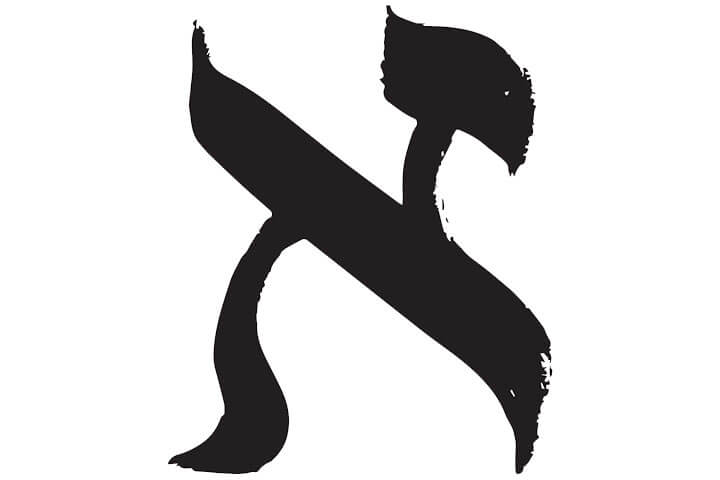 While writing this, I want to speak briefly to people who have always avoided the Kabbalah -- linking it with evil from the get-go as taught by their parents or their church or their culture -- and never looking into it.
While writing this, I want to speak briefly to people who have always avoided the Kabbalah -- linking it with evil from the get-go as taught by their parents or their church or their culture -- and never looking into it.
I am glad I didn't do this (although that fundamentalist fear-of-unknown is where I started), because I have learned genuinely good things in this area of study, which have made "the straight and narrow" path more meaningful and deep.
Because of these more fundamentalist origins, I was careful all along, for example, learning early to petition God with a quiet and simple prayer before reading, to ensure I could maintain an internal equalibrium when encountering compelling ideas that tend to pull people in. And also because experience has shown that I am able to find better, deeper, insights by doing this, as compared to the times I did not do so.
I know I cannot judge my present wholly, enough that I will wait a few years before I form a mature opinion of what I'm doing here, but I do know enough to do this wholly. Yes, I would need to cast it all away in a more polarized manner if I had, for example, overtly studied the evil portion, but to the best of my knowledge, I have never studied one whit of it (beyond the glimpses which hurtle themselves at you from books authored by men of corrupted souls masked with well-worn smiles, but these types appear in other fields of study also, so it is a general skill to learn to avoid them).
So I do not here encourage an outright rejection of Kabbalah, nor intend to reward any who, encountering these words, would say "I told you so." That's not what is happening here. If anything, it's the opposite, and I'm telling you so. You never touched your toes into the water, and thus your position comes with that self-righteous disdain common among those who hold a given truth because he inherited it, rather than working for it. This form of ignorance is to me a more toxic poison than a path based in intelligent, inquisitive, study which steps back from time to time and gains an objective position from which to evaluate next steps, like what is happening here. To those of the shallow good, your path is like the parable of the steward who hid his money in the ground instead of investing it while the master was away, and when the master returned, all he had was taken away and given to the one who took the riskier but more rewarding path.
Since I tend to write about things like this a few times before I've fully expressed certain nuances, I suppose I'll revisit this walking-away a few times before I'm done. However, I am certain that I am now walking away from the Kabbalah as a means to provide a large framework from which I could ultimately position much of my writing. I already believe I can achieve this in mathematics, but perhaps it will be some other field, as I have plenty of time in which to find the place to settle in and call my intellectual home.
Remember I am at heart a journalist, a writer
Note that I will continue to carry my long-pursued journalistic project of interviewing and documenting others who have ideas that are Kabbalistic in nature. This is only pursued with people who are amateurish enough I am certain they have no hidden evil intentions, people who are like I was until recently, ignorant of the possibility of great evil within this learned domain, whose knowledge would be lost without some amateur like me documenting it. But this will happen within a framework of me searching (and eventually finding) another large structure -- within which I can organize my thoughts -- which is decidedly not Kabbalah.
This is true even if the field I find ends up covering some of the same territory (which I say because I understand how intimately, for example, Kabbalah and mathematics entangle, or philosophy, and so forth. No matter where you come from when studying the underlying unity of all things, you'll find all virtues converge toward the same center.) If people like Cantor or Newton can move freely between these two fields and later be known primarly as mathematicians, or physicists or scientists, that is a model I should be able to use also.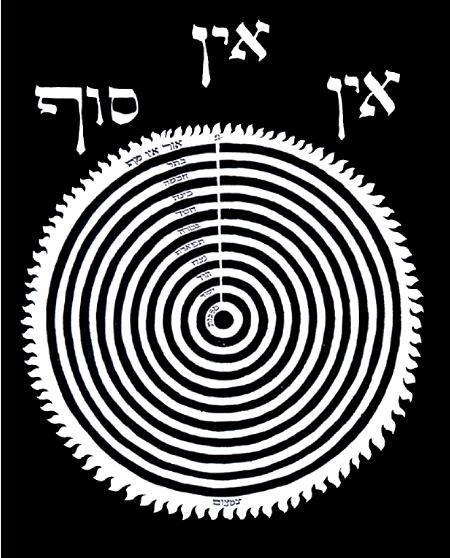
I also do not want to convey the idea that my new understanding of evil within Kabbalah is immature. It is, in one way -- it just happened -- but I am not entirely a fool in this area. I have known all along that the forces of good and evil flow freely in this once-hidden-domain, this cabal, which is as a whole coming out of the darkness into the light with each passing day, with writers like Scholem and Kaplan bringing them to everyone. To reiterate so it is clear: that lower-level "practical, magical" and often evil-aligned approach has always struck me as immature rubbish, being too obviously oriented around power, ego, and selfish desires. The newness is not in knowing the existence of evil, but in discovering its depth.
To summarize: what I have always pursued was meditative, philosophical, mathematical; along these lines. I think it is impossible to study in this field without having an awareness of how evil could use the knowledge herein. So I've had that all awareness along, and thus appreciated the many built-in methods to avoid evil, styles of writing employed by great writers like Scholem and Kaplan, which to me spoke of inherent goodness.
What is new and different now is that I know with enough certainty there are others who are very evil, who study some of the same core structures, and I, at this time, cannot imagine being found in their camp, now, in the past, or at any time in the future.
Hence I must be overt in doing this, or else I risk influencing others who find my writing and decide I have something useful to say. If I have anything useful to say on this subject, it will henceforth come with the caveat that I cannot wholly accept a path which tolerates within its practice the work of advanced evil. Crude and foolish evil happens; advanced evil requires pre-meditation. I must seek along the narrower, straighter path, which ends only in good because the path inclined toward good all along.
Lastly, if you wonder why I embedded a handful of obviously-Kabbalistic images in an essay walking away from Kabbalah, note what I said earlier about black-and-white and how I don't work that way. These images are of the innocuous sort (as far as I know) and, to me, pretty. I've always liked intricate little diagrams that convey deep truths. This is what makes geometry so beautiful, for example. I find similar things in mathematics and love them there, too. 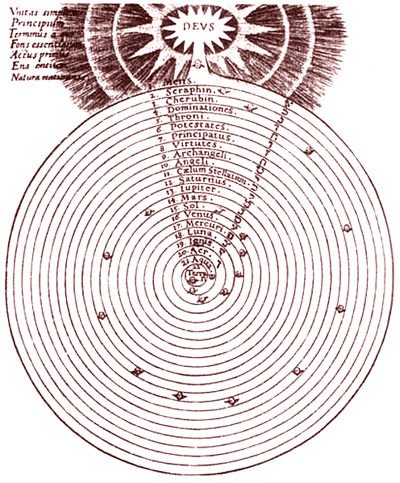
Some people will try to confine my graduation act here into a binary judgment, of the kind which has never been able to make sense of my life. Such people are operating with an overload of boolean logic, and therefore might find my other writings on ternary logic interesting... although it is more likely they will find them extremely tedious.
I hope this is enough clarity on the matter. Thanks for listening.